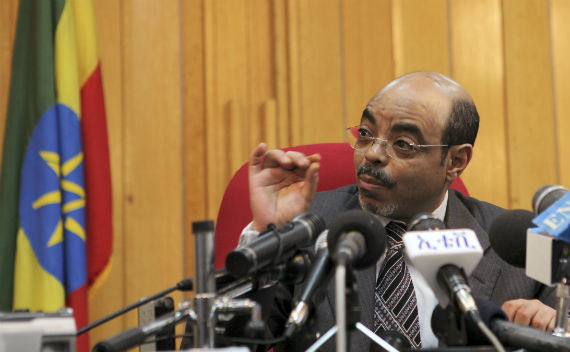Wikileaks Cable Forces Ethiopian Journalist to Flee
More on:

The Committee to Protect Journalists said on September 14 that an Ethiopian journalist identified by name in a U.S. diplomatic cable leaked by Wikileaks has fled the country after police interrogation. A consequence is that the highly distinguished reporter Argaw Ashine can no longer write about Ethiopia from within, a situation that likely suits Prime Minister Meles Zenawi’s government just fine. Indeed, his departure seems to me to be one more victory for repression, this time abetted by Wikileaks.
CPJ Executive Director Joel Simon commented,
"Wikileaks must take responsibility for its actions and do whatever it can to reduce the risk to journalists named in its cables. It must put in place systems to ensure that such disclosures do not reoccur."
Simon’s brief extends only to journalists. But what he says is true for other individuals named in the leaked cables, including government officials, opposition figures, religious leaders, and a host of others from business and civil society. Wikileaks particularly endangers just those persons who are struggling for human rights, democracy, and transparency in government.
I have said before that Wikileaks’ release of classified U.S. diplomatic documents sets back U.S. diplomacy. International partnerships require free communication and trust. Wikileaks undermines both. Beyond those concerns, the CPJ statement usefully highlights the damage Wikileaks can do to specific individuals, including putting their lives at risk.
Diplomatic correspondence is classified for good reason. Among other things, it protects sources -- but it also protects the reputations of individuals discussed. After all, what an individual says during an encounter with a diplomat may -- or may not -- be true. And there may be another side to the story. A specific diplomatic report should be used only in a broad context -- and such is nearly always lacking in sensational press reporting that highlights a specific diplomatic communication. A diplomatic report may contribute to the formulation of U.S. policy; in and of itself, however, it may not be a statement of a U.S. government position. Nor are its conclusions necessarily accepted by a Washington administration.
Classified diplomatic correspondence remains classified even if reaches the public domain through theft -- which is what Wikileaks is. Hence, U.S. diplomats as a rule will not participate in a debate about classified correspondence.
More on:
 Online Store
Online Store